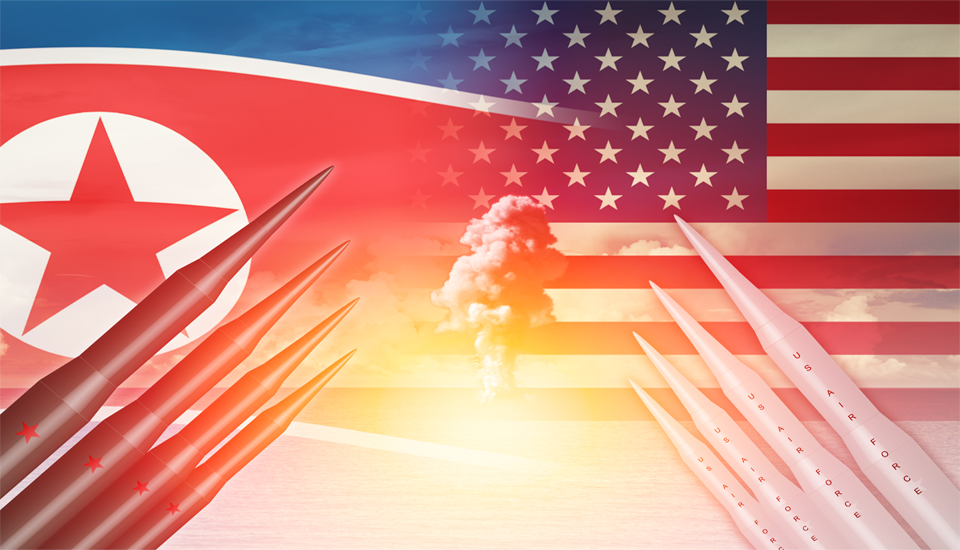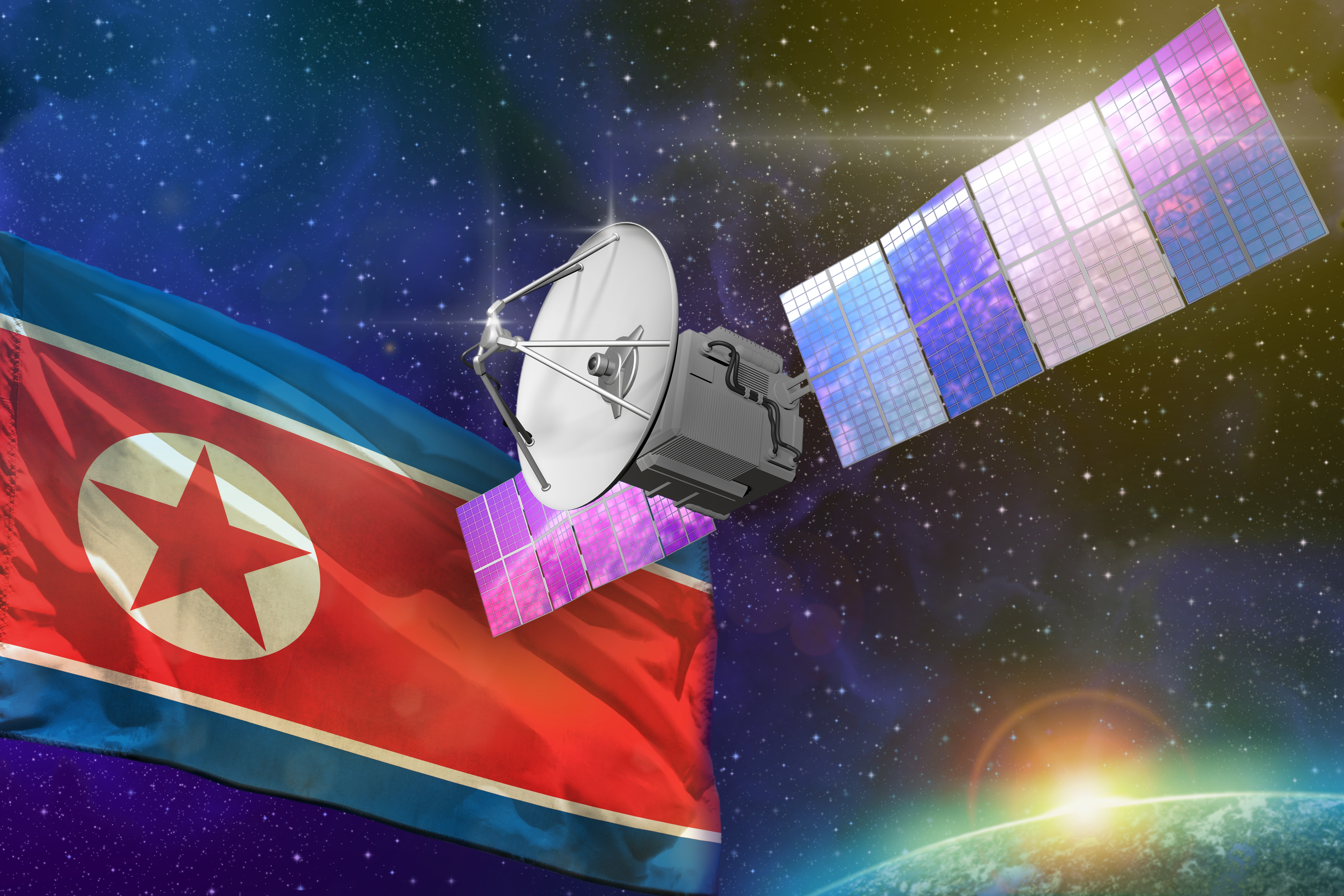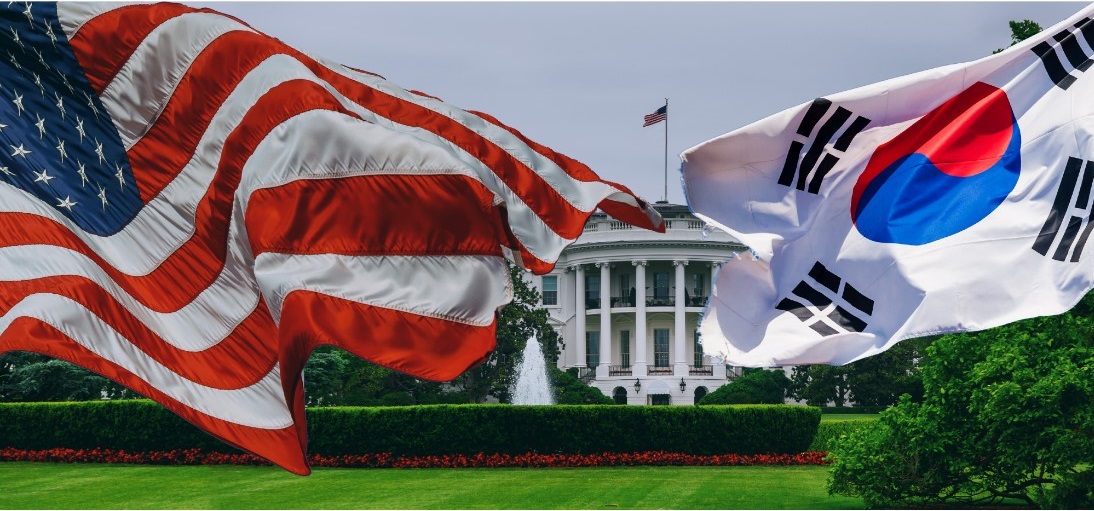
Tasks for North Korea Policy After the Washington Declaration
Commentary | June 05, 2023
Yu-hwan Koh
President, Korea Institute for National Unification
Yu-hwan Koh, the President of the Korea Institute for National Unification, acknowledges the progress made in maintaining the Nuclear Non-proliferation Treaty regime and bolstering extended deterrence capabilities against North Korean nuclear threats through the Washington Declaration. Nevertheless, he underscores the lack of a fundamental solution to halt further advancements in Pyongyang's nuclear capabilities. Dr. Koh emphasizes the importance of establishing normalized relations between the United States and North Korea, particularly considering that North Korea now possesses nuclear weapons and is unlikely to return to denuclearization talks. In response, he reiterates the significance of the ROK-US alliance in strengthening the Three-Axis system and developing new weapon systems that can effectively counter North Korea's nuclear capabilities.
The Washington Declaration and Strengthening the Practicality of Extended Deterrence
The adoption of the Washington Declaration at the U.S.-South Korea summit in April, held to commemorate the seventieth anniversary of the U.S.-ROK alliance, appears to have alleviated the concerns of the South Korean people on North Korea’s nuclear advancements. President Yoon Suk Yeol emphasized “peace by overwhelming power,” not a "fake peace" that relies on another party's good will. He also mentioned that the possibility of South Korea developing its own nuclear weapons is not ruled out. The Washington Declaration demonstrates the strengthened practicality of extended deterrence that reflects President Yoon’s such recognition and stance, which seems to be grounded on the failure of previous efforts to denuclearize North Korea and the judgment that North Korea is unlikely to engage in denuclearization talks anytime soon.
The agreements at the U.S.-South Korea summit—establishing the vice-minister-level Nuclear Consultative Group (NCG) and expanding the deployment of U.S. strategic assets on the Korean Peninsula—have achieved a balance of terror that corresponds to the advancement of North Korea’s nuclear weapons. The establishment of the NCG, coupled with the joint execution of wartime operational control between the U.S. and South Korea, can be considered an upgrade of the October 1953 the US-ROK Mutual Defense Treaty.
With Washington Declaration, the U.S. has made progress in restraining South Korea’s inclination to develop its own nuclear weapons while upholding the Nuclear Non-proliferation Treaty (NPT) regime. Simultaneously, South Korea has enhanced the practicality of extended deterrence to deter North Korean nuclear threats. However, a fundamental solution to go beyond the balance of terror and prevent North Korea’s nuclear capabilities from advancing has yet to be devised.
North Korea cites its hostile relationship with the U.S. as the motivation behind its pursuit of nuclear development, claiming that it develops nuclear weapons for “war deterrence.” In response, the U.S. and South Korea are employing the strategy of the balance of terror, intending to deter North Korea’s use of nuclear weapons through the extended deterrence. South Korea has emphasized “peace by overwhelming power,” while the U.S. has warned that the use of nuclear weapons by North Korea will result in the end of Kim Jong Un regime. In response, North Korea described the Washington Declaration as “a typical product of the heinous hostile policy toward the DPRK,” and stated that “the dangerous nuclear war moves of the U.S. and the puppet group running amuck in stifling the DPRK … can never be pardoned and they will have to pay dearly for their rash acts (Korean Central News Agency 2023).”
The Balance of Terror between the Extended Deterrence and War Deterrence
The situation on the Korean Peninsula, which achieved a delicate balance of power with the Washington Declaration, has entered a period of relative calm. However, uncertainty persists, making it difficult to anticipate unforeseen events. North Korea, adhering to the principle of “responding to power with power,” is expected to adjust the intensity of its response based on the moves taken by the United States and South Korea. Since the era of Kim Il-sung, North Korea has maintained the ideology that “rice is socialism,” suggesting that as long as its food supplies are sufficient, it can endure a prolonged conflict with the United States. During the busy farming season, North Korea’s primary focus is on increasing food production in alignment with the strategic policies of the Party while refraining from provocative actions.
If North Korea’s pursuit of war deterrence through nuclear weapons on the one hand and the U.S.-ROK’s emphasis on the balance of terror through the strengthened practicality of extended deterrence on the other hand continue to be in a standoff, it is inevitable that direct confrontation between North Korea and the U.S. and severed inter-Korean relations will persist. While North Korea-U.S. and North Korea-South Korea communication channels remain cut off, the possible outbreak of contingency—whether instigated by a deliberate provocation or an unforeseen event—escalating into a full-scale war cannot be dismissed.
Since the inauguration of the Biden administration, the U.S. has advocated a “calibrated, practical approach” and has been awaiting a response from North Korea. However, North Korea perceives that the U.S. has shown little interest in addressing the fundamental issues, such as resolving the hostile relations. Hence, North Korea has prioritized the advancement of its nuclear force. Against this backdrop, efforts have only been directed towards strengthening the extended deterrence, with no visible efforts towards reestablishing the dialogue. Amid the intensifying strategic competition between the United States and China and the ongoing war in Ukraine, the Korean Peninsula issue has been deprioritized.
Inter-Korean relations have also become strained since the no-deal summit in Hanoi. In the previous year, all forms of inter-Korean exchanges, whether involving people or materials, came to a complete halt. The joint Inter-Korean Liaison Office in Kaesong was blown up on June 16, 2020, and now the military and inter-Korean communication lines have been severed. The growing divide in inter-Korean relations is evidenced by the Deputy Director Kim Yo Jong expressing a desire to live without being conscious of each other.
After the no-deal summit in Hanoi, North Korea has refused to be incorporated into the global capitalist economy, asserting that “a new era is coming in which the Earth revolves around Choson (the DPRK)” and remains focused on boosting the spirit of self-reliance (Charkyok Kaengsaeng) in line with its centralism (Rodong Sinmun 2022). North Korea perceives the current global landscape as transitioning into a new Cold War system with an accelerating trend towards multi-polarization. The DPRK emphasizes the need to develop its national power in alignment with such perception (Rodong Sinmun 2023).
After North Korea defined South Korea an "apparent enemy," shifted its relationship with South Korea to an "adversarial relationship," and mentioned the possibility of using tactical nuclear weapons, voices within South Korean society have been raised about developing its own nuclear weapons, redeploying tactical nuclear weapons, and sharing the U.S.' nuclear weapons.
The “Audacious Initiative” and the Search for a Solution to North Korea’s Nuclear Weapons
The failure to prevent the advancement of North Korea’s nuclear weapons can be attributed to the fact that North Korea’s determination to possess such weapons surpassed the international efforts to thwart its nuclear ambitions. Arguably, almost every possible solution to North Korea’s nuclear issue has been proposed over the past 30 years. The solution only differs depending on strategic priorities and the sequence of exchange.
The approaches pursued by the United States and South Korea regarding North Korea, include utilizing economic cooperation and humanitarian aid as incentives, while often overlooking critical matters such as transitioning from an armistice to a peace system, resolving the hostile relations between North Korea and the United States, and achieving a normalization of DRPK-U.S. relations. As a result, they have experienced periods of progress and setbacks in response to the present circumstances. Attempts to achieve North Korea’s denuclearization through “security-economy exchange” approach, which is a “freeze-in-exchange-for-rewards” strategy, while deferring negotiations on the peace regime have failed as a result of North Korea’s nuclear advancements.
North Korea’s nuclear threat poses a geopolitical risk to South Korea while also imposing constraints on South Korea’s foreign policy autonomy. South Korea’s emergence as a global pivotal state can be attributed, in part, to its skillful utilization of geopolitics: South Korea took advantage of geopolitics of the Cold War era, receiving guidance from the United States while facing pressure from North Korea; South Korea took to its advantage the geopolitics of the post-Cold War era thereafter, deepening a division of labor with China. However, moving forward, the factors that facilitated South Korea’s development will present new geopolitical challenges.
Amid the intensifying U.S.-China strategic competition and North Korea’s advancement of nuclear capabilities, South Korea’s policy autonomy is inevitably limited. The Yoon Suk Yeol administration, facing a transformative period characterized by the restructuring of the world order, aims to strengthen South Korea’s global cooperative partnership with the United States and align itself with the U.S.-led Rules-Based Order and the Indo-Pacific order. Efforts to restore a forward-looking relationship with Japan through the ROK-Japan summit and bolster the U.S.-ROK alliance through the Washington Declaration have strengthened the trilateral cooperative relationship based on “value diplomacy” between South Korea, the United States, and Japan. However, South Korea’s relations with China and Russia are currently undergoing an adjustment, primarily influenced by factors like supply chain restructuring. Consequently, China and Russia has shown lukewarm stances in terms of imposing sanctions on Pyongyang’s long-range missile launches during the UN Security Council discussions.
The Yoon administration has introduced the “Audacious Initiative” as a proposal for resolving North Korea’s denuclearization issue. However, North Korea emphatically rejected the Yoon administration’s “security-economy exchange approach,” which offers economic infrastructure as rewards for progress towards denuclearization, if North Korea returns to the negotiation table with the genuine intent. North Korea perceived it as a replication of the Lee Myung-bak administration’s “Vision 3000: Denuclearization and Openness.”
Nonetheless, the South Korean government remains steadfast in its commitment to “create an environment for North Korea to return to the negotiation for denuclearization.” This approach involves “taking a holistic approach that deters North Korea’s nuclear threat based on a strong ROK-US alliance, dissuades the North from developing nuclear weapons through sanctions and pressure, and makes progress for denuclearization with diplomacy and dialogue (Ministry of Unification 2022).”
Given North Korea’s insistence on nuclear coexistence while the South Korean government pursues a vision of “denuclearization-peace and prosperity,” finding common ground is likely to be challenging. Considering past experiences, denuclearization efforts that rely solely on economic incentives will be difficult to revive. Ultimately, a process of denuclearization-peace exchange, which encompasses issues related to regime security that North Korea considers as fundamental problems (such as U.S.-ROK joint military exercises, the transition from an armistice agreement to a peace agreement, and the normalization of U.S.-North Korea relations), will need to be arranged to persuade North Korea.
It is crucial to acknowledge that the success of the “Audacious Initiative” hinges on resolving the challenge of how the United States and North Korea can undertake the process of establishing normalcy in their relationship. Until now, the U.S. has pursued normalization of its relations with the premise of North Korea’s denuclearization. If the U.S. proceeds with normalizing relations while North Korea possesses nuclear weapons, it faces the dilemma of recognizing North Korea as a nuclear state. This would imply the failure of the U.S.’s denuclearization policy and exposing the limitations of preventing nuclear proliferation. Hence, a carefully sequenced plan for normalizing U.S.-North Korea relations that aligns with denuclearization must be formulated and effectively conveyed to North Korea. The Yoon Suk Yeol administration has expressed its willingness to provide diplomatic support for the normalization of U.S.-North Korea relations; additionally, Japan exhibits a non-pessimistic stance regarding the normalization of diplomatic relations with North Korea. Thus, it is imperative to actively consider the normalization of relations between the United States and North Korea, as well as between Japan and North Korea as the means to resolve the North Korean nuclear issue.
South Korea and the U.S. must continue to cooperate in strengthening the Three-Axis system (Kill Chain, Korean Air and Missile Defense, and Korea Massive Punishment and Retaliation) to effectively address the possibility of North Korea withdrawing from denuclearization talks. Additionally, we should develop a new weapons system, such as hypersonic missiles, laser weapons, and AI technology-applied weapons that can neutralize North Korea’s nuclear capabilities.
Reference
Korean Central News Agency. 2023. “Truth of Dangerous Trip for Nuclear War Disclosed.” April 30.
Rodong Sinmun. 2022. “Great Kim Jong Un Will Continue to Win Endlessly- To the Brilliant Victory of 2022.” December 21.
Rodong Sinmun. 2023. “Report on 6th Enlarged Plenary Meeting of 8th WPK Central Committee.” January 1.
Ministry of Unification. 2022. A Denuclearized, Peaceful and Prosperous Korean Peninsula: The Unification and North Korea Policy of the Yoon Suk Yeol Government. E-book: 1-35. https://unikorea.go.kr/books/archive/archive/?boardId=bbs_0000000000000043&mode=view&searchCondition=all&searchKeyword=&cntId=47381
■ Yu-hwan Koh is the President of the Korea Institute for National Unification (KINU).
■ Typeset by Jisoo Park, Research Associate
For inquiries: 02 2277 1683 (ext. 208) | jspark@eai.or.kr
Security and External Relations

North Korea’s Space Development: The Gap Between Ideal and Reality
Cheol-wun Jang | 22.May.2023

The South Korea-U.S. Summit and Measures to Enhance Bilateral Cooperation on North Korea
Jechun Kim | 03.May.2023
![[Global NK Commentary Series] North Korea's New Cold War Narrative](/upload/commentary/09da1c044f9a88a2604108134098179c.png)
[Global NK Commentary Series] North Korea's New Cold War Narrative
Won Gon Park, Dong Ryul Lee, Hyun-wook Kim, Seho Jang, Seunghee Oh, Jihwan Hwang | 06.April.2023
LIST